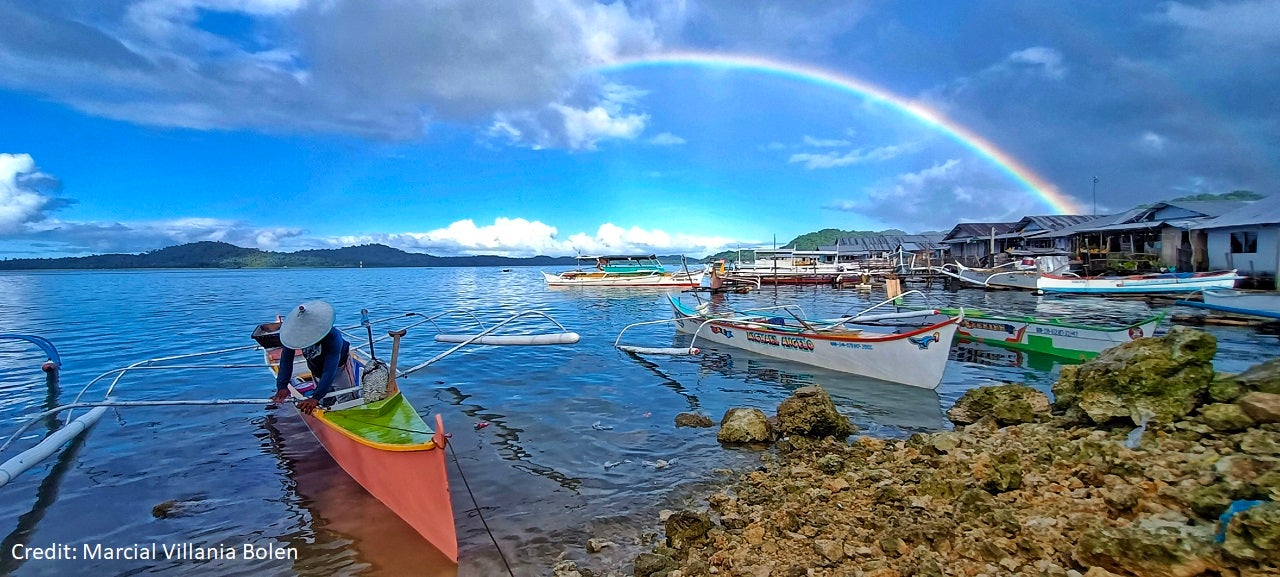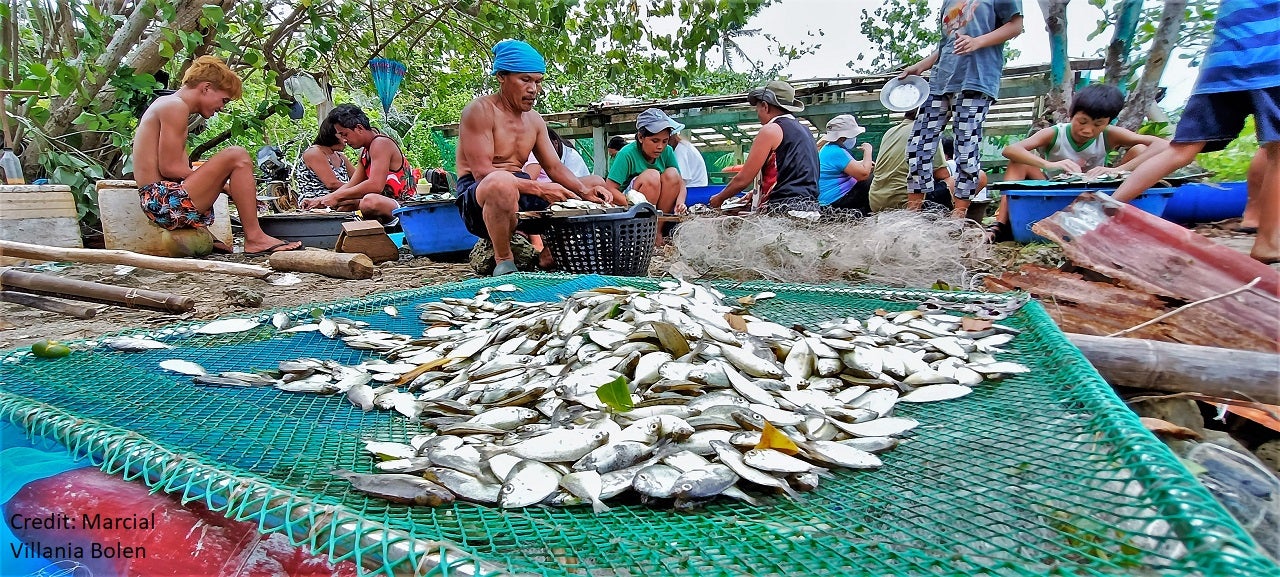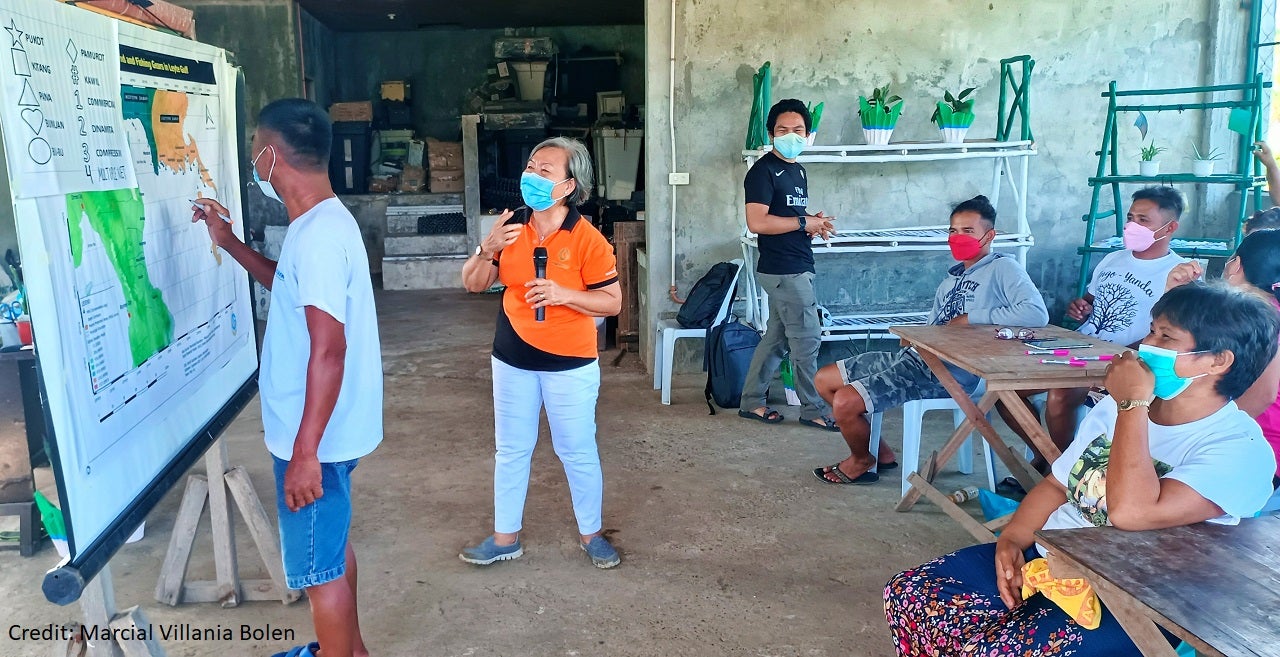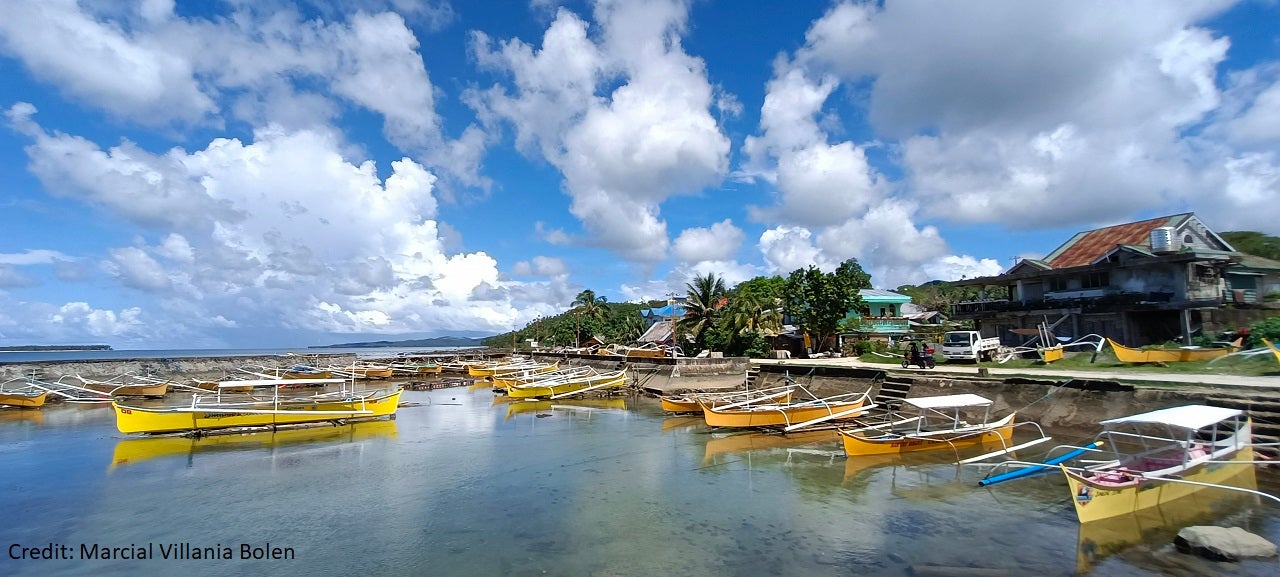 Effective fisheries management is critical to food security, livelihoods for millions of people and vibrant marine life and biodiversity. By empowering communities to sustainably manage marine resources, we can build resilience to climate change, secure healthy oceans and better protect communities that are vulnerable to extreme weather events. This is especially true in the Philippines, where science-based and participatory fisheries management is still in its infancy. Until recently, fisheries policy in the country was premised on political concerns and administrative boundaries rather than species ranges, stock health and other scientific information. But by building science capacity, working across borders and prioritizing participation from fishers and other stakeholders, we are helping to develop effective, science-based fisheries management plans that can help people and nature to thrive.
Effective fisheries management is critical to food security, livelihoods for millions of people and vibrant marine life and biodiversity. By empowering communities to sustainably manage marine resources, we can build resilience to climate change, secure healthy oceans and better protect communities that are vulnerable to extreme weather events. This is especially true in the Philippines, where science-based and participatory fisheries management is still in its infancy. Until recently, fisheries policy in the country was premised on political concerns and administrative boundaries rather than species ranges, stock health and other scientific information. But by building science capacity, working across borders and prioritizing participation from fishers and other stakeholders, we are helping to develop effective, science-based fisheries management plans that can help people and nature to thrive.
Beginning in 2019, the Philippine’s Fisheries Management Area, or FMA, policy was approved, paving the way for a transformation to effective fisheries management, though COVID-19 slowed implementation down considerably. In the last year and a half, the EDF Philippines team focused on building capacity for fisheries science among the country’s National Stock Assessment Program teams, in preparation for a time when the FMA management bodies and stakeholders need the information to develop fisheries management plans.
FMA 8, a region on the country’s eastern seaboard, includes Leyte Gulf, Surigao Strait and Dinagat Sound. It is among the most vulnerable to typhoons, storm surges and extreme weather events. Its provinces are among the poorest in the Philippines and the most vulnerable to insurgency. The Bureau of Fisheries and Aquatic Resources, or BFAR, lead invited EDF Philippines to partner with them and the FMA 8 management body to develop its first multispecies management plan.
To kick off the initiative, an online event brought together the EDF Indonesia team and Indonesian government partners and the FMA 8 management body and planning team. The event was an opportunity for the FMA 8 stakeholders and decision-makers to learn how the planning process was implemented in a setting with similar resources, habitats and management challenges. It provided real-life examples of fisheries management planning to anchor the otherwise very theoretical information provided to the stakeholders.
The Indonesia team and partners presented fisheries management planning and design efforts, and lessons learned in Lampung and West Java for blue swimming crab and coastal multispecies fisheries from other places in the world. Genuine stakeholder involvement from data gathering to decision-making was an essential element of planning in all three areas, and one that FMA 8 would like to adopt in its own planning process.
In the breakout rooms after the presentations, participants were asked to discuss three questions:
- What aspects of the presentations resonated with you most?
- What elements could be adopted for the FMA 8 planning process?
- What skills and capacities would be needed to effectively implement the planning initiative?
Answers to the first question about what resonated most included the single species and multispecies approaches in the different areas, the participatory nature of the process and the inclusion of scholarships, insurance and other social safety nets in the fisheries management plan. Many were also struck by the similarities between Indonesia and the Philippines in terms of not only resources, but also the challenges of scale, governance and implementation in fisheries management.
FMA 8 participants highlighted stakeholder involvement as one of the most important elements that should be adopted. Others mentioned mechanisms for communication, good facilitation and teamwork — very important components to the planning process.
The third question about what skills and capacities to implement elicited many interesting responses as well, including the need to integrate gender and climate lenses into the process. Planning, communication and facilitation skills also came up as important capacities to develop among the FMA 8 planning team. Science capacity-building was also identified as important for the FMA 8 management body and local governments. NSAP and EDF will build on the stock assessment work and guide the management body and other stakeholders towards using the information to formulate effective and implementable policy.
The responses to the third question, particularly, will form the basis of the follow-up activities, which will focus on identifying capacity-building requirements for formulating and implementing the FMA 8 fisheries management planning process.
The FMA 8 leads from the Bureau of Fisheries are confident that the planning process they develop in partnership with EDF will be well received by the management body. Both the Bureau of Fisheries and the EDF Philippines team are hopeful that the process will be initiated in 2022, and that it will result in a management plan that is appropriate to the FMA’s resources and implementable by its stakeholders.












